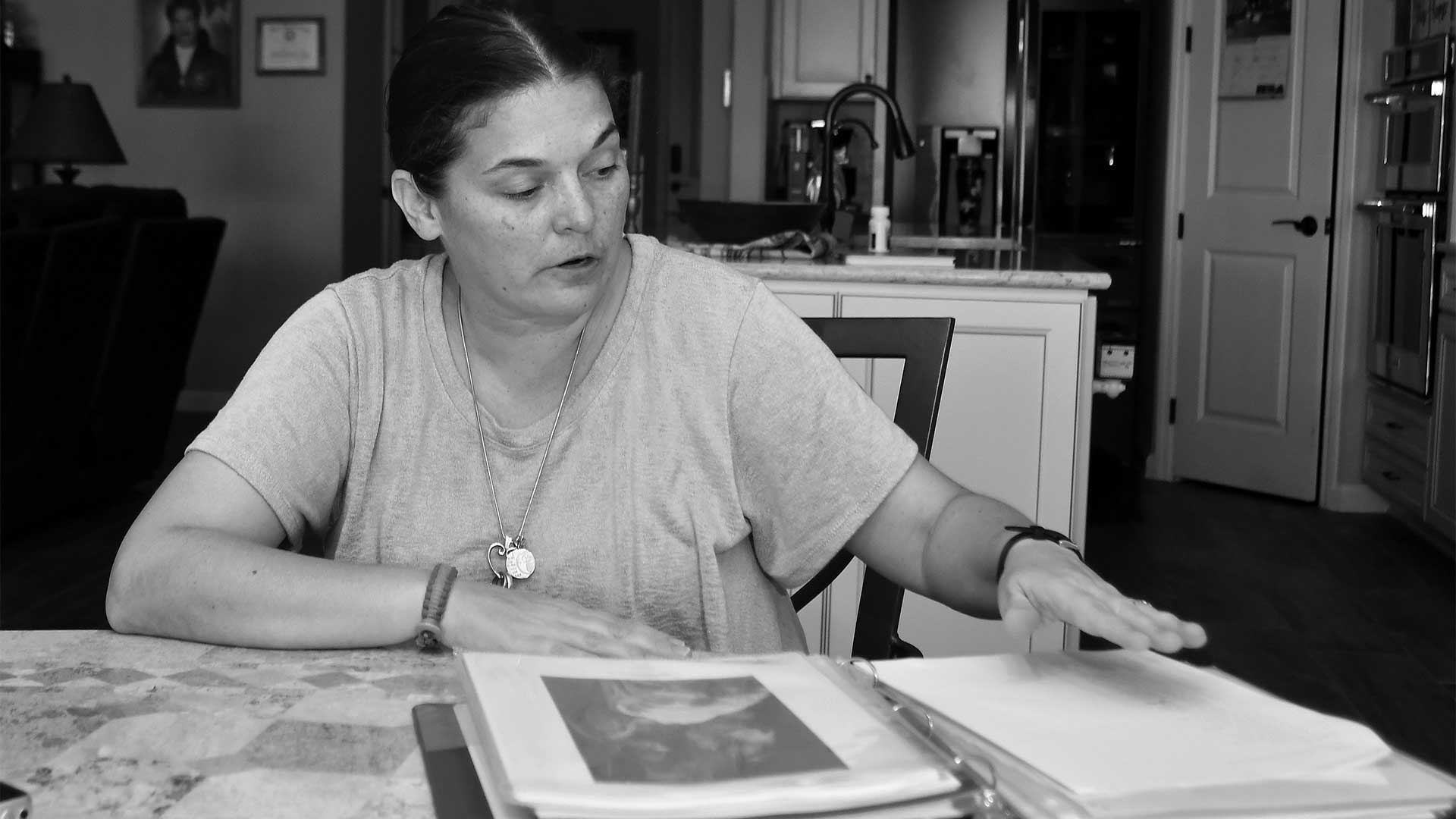Navy Veteran Courtenay Nold has declared Total War on PTSD.
In fact, that’s the title of the book Courtenay plans publishing later this year as a way of helping other Veterans find relief for the same symptoms of post-traumatic stress disorder and traumatic brain injury (TBI) that have plagued her since her years in the military.
Deborah Zelinsky, OD, founder and executive research director of the Mind-Eye Institute in Northbrook, Ill., is one of 46 professionals who have contributed chapters and articles to the book. Dr. Zelinsky is internationally recognized for her clinical work and studies of how changes in the way light passes through the retina – retinal stimulation — can affect brain function. The Mind-Eye team combines neuroscience-based principles of neuro-optometric rehabilitation with advanced eye-ear testing techniques to lessen patients’ symptoms of TBI, concussion, PTSD, and other neurological disorders.
Courtenay, who was medically discharged from the Navy in 2013, still struggles with effects of PTSD. Much of that she blames on her time stationed at Afghanistan’s Kandahar Airfield, which frequently came under rocket attack. She knows of other officers and enlisted who were with her at Kandahar and who also have developed PTSD.
“During my seven months there, we survived nearly 100 rocket attacks, oftentimes with the rockets coming in groups of two or three,” recalls Courtenay, who left the Navy at a Lieutenant Junior Grade (LTJG). “We would shelter in bunkers during these attacks. In one instance, I actually saw a rocket pass overhead and strike the cafeteria near the building in which I worked. We were constantly on edge. Any day could be your last day.”
Her experiences have left her in perpetual fight-or-flight mode. “In groups, I keep my back up against a wall and cannot tolerate people arguing or talking loudly,” Courtenay says. She also is unable to drive a car; sometimes slurs her words; suffers chronic headaches, light sensitivity, and sleep disruptions; cannot read because of memory and retention problems; and is dependent for assistance on her husband and service and therapy dogs.
Exacerbating Courtenay’s symptoms is a neurocognitive disorder caused by a traumatic brain injury that she says she incurred while in a military hospital undergoing electroconvulsive therapy to relieve her PTSD.
“Prolonged stress, shock, injury or disease can affect spatial awareness and impact a person’s behavior, perceptions and responses to environmental changes,” writes Dr. Zelinsky in the chapter she contributed to Courtenay’s book. “For people suffering from PTSD, this shift in spatial awareness may be dramatic and can lead to abnormal brain and nerve activity. Optometrist, Paul Lederer, OD, who is now retired, paved the way for this type of optometric research years ago.”
Dr. Zelinsky explains that the retina is made up of brain tissue and is “an overlooked” part of the central nervous system. Indeed, the retina serves as a two-way portal, transferring environmental signals from outside to inside and vice versa, while the mind and body continually adapt to external and internal sensory changes. By varying the way light enters the retina, we can impact how the brain reacts, interprets and responds to information from the environment.”
Following extensive testing and evaluation (highly individualized for each patient’s unique brain), the Mind-Eye team prescribes the proper mix of filters, lenses and/or prisms — “brain” glasses — that help readjust a patient’s visual processing and eye-ear integration, thereby increasing patient comfort and usually lessening symptoms, Dr. Zelinsky says.
Meanwhile, Courtenay has attained some relief as a result of Ketamine Therapy – therapy sometimes used to treat depression – but believes the Mind-Eye Institute could provide her with important, additional benefits. Unfortunately, the difficulties inherent in trying to travel from her out-of-state home to the Chicago area remain a stumbling block.
Courtenay says she is hopeful more optometrists eventually will undergo training and certification in Mind-Eye Institute techniques, thereby making Institute programs more locally accessible in other parts of the country. She also recommends the Mind-Eye Institute to other Veterans with PTSD or traumatic brain and blast injuries.
“Organizing 46 professionals into and over a 1,000-page book that helps Veterans renews my sense of purpose. It is truly proving to be a labor of love, and I am proud to do this on behalf of anyone out there who is still dealing with PTSD,” says Courtenay.

Media, Veterans
